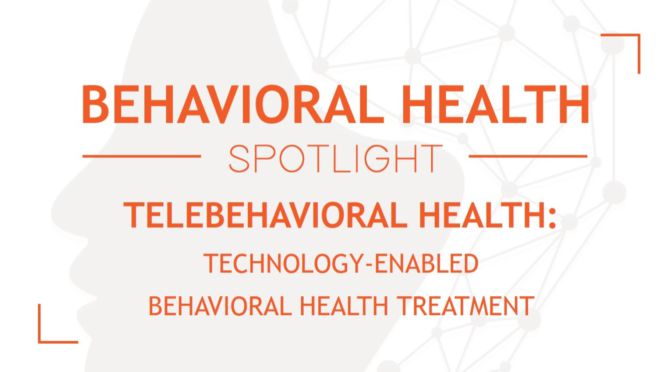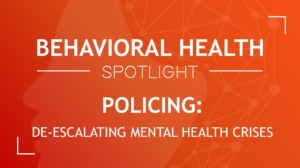Written By: Todd W. Mandell, MD and Rhonda Waller, PhD
The global COVID-19 pandemic is casting new urgency on the topic of teen mental health. Adolescence is already a time of significant physical, mental, emotional, and social development. It is normal for teens to experience a wide range of emotions and unpredictable moods. The COVID-19 pandemic has added a new set of challenges as teens navigate disruptions to their usual school, extracurricular, and social routines due to lockdowns, social distancing restrictions, and uncertainty about the future. According to a review of relevant research published in June 2020, many teens may experience isolation and loneliness which could lead to or exacerbate feelings of depression and anxiety. Currently, there is little data that examines the impact of pandemics such as COVID-19 on teens’ mental health, though some researchers are starting to explore this topic. Oxford University recently initiated a study that will track adolescents’ mental health to identify factors that hinder and promote resilience during the pandemic. In the meantime, we know that rates of teen depression and anxiety have risen during the past decade.
A 2019 study that examined National Survey on Drug Use and Health (NSDUH) data found that from 2005 to 2017, the percentage of adolescents (12 to 17 years old) experiencing at least one major depressive episode increased from 8.7 percent to 13.01 percent—a 52% increase. In 2018, the rate was 14.4 percent—roughly 3.5 million adolescents. The National Institute of Mental Health reports that nearly one-third (32 percent) of adolescents 13-18 years old experience an anxiety disorder. A 2018 study that examined data from the National Survey of Children’s Health (2003, 2007 and 2011-2012) found that anxiety similarly appears to be on the rise.
While there is no conclusive answer for why teen depression and anxiety are rising, some common themes in research include:
- Increased awareness about mental health issues might increase disclosure of symptoms and identification of mental health disorders.
- Continuous exposure to social media and news that may have an adverse impact on teen’s mental health.
- Increased social and academic pressures and expectations for youth may contribute to depression and anxiety.
In addition, health inequities and social determinants of health such as socioeconomic status, education, social support networks, and access to health care can influence adolescent mental health.
The bottom line, however, is that mental health disorders are a real concern for teens—and the COVID-19 pandemic may exacerbate these issues for some youth. Left untreated, mental health disorders can have a lifelong impact on health. Parents, teachers, coaches, and others who interact with teens should stay alert for signs of anxiety and depression. Warning signs and symptoms may include:
- Loss of interest in activities previously enjoyed
- Avoiding school, activities, and social interactions with friends and family
- Changes in grades
- Trouble sleeping/concentrating
- Engaging in self-harming or risky behaviors such as substance abuse
- Chronic physical complaints
- Sleeping too much or too little
- Increased irritability or moodiness
The American Academy of Pediatrics’ parenting website offers practical information from child health experts on how to support teens’ mental health during the COVID-19 pandemic, including strategies for healthy routines, effective communication, safe virtual connections, family support, and physical and emotional health. However, parents who observe or are concerned about signs of depression or anxiety in their teen should discuss this with their pediatrician or a health care provider. The U.S. Department of Health and Human Services has also compiled a comprehensive list of Resources to Support Adolescent Mental Health. In addition, the National Institute of Mental Health recommends that teens save several emergency numbers in their cell phones to ensure immediate help for themselves or a friend in an emergency—including the non-emergency local police department number, the Crisis Text Line (741741) and the National Suicide Prevention Lifeline (1-800-273-TALK).
From a public health perspective, increased screening for depression and anxiety and access to health care could result in earlier detection and treatment, which is particularly important during the pandemic. Many experts, including the U.S. Prevention Screening Task Force (USPSTF) and the American Academy of Pediatrics, recommend annual screening of teens for depression. Most insurance companies are now covering telehealth visits at the same rate as in-person visits, which may make screening and services more accessible for teens needing treatment. With growing awareness of the effects of the pandemic on mental health, it is now even more important that teens experiencing depression and anxiety get timely screening and treatment to improve their outcomes.
Todd W. Mandell, MD, Senior Associate, Addiction Medicine. Todd Mandell is a board-certified Psychiatrist with added qualifications in Addiction Medicine, and more than 30 years of experience in the field of co-occurring psychiatric and substance use disorders with a focus on direct patient service, program development, and administration. (LinkedIn)
Rhonda Waller, PhD, Senior Associate, Maternal and Child Health. Rhonda Waller is a psychologist with more than 25 years of professional experience in public health, education, and human services with an emphasis on program development, leadership development, capacity building, and training and technical assistance. (LinkedIn)
The Bizzell Group (Bizzell) was founded by President & CEO Anton C. Bizzell, M.D., a leading behavioral health expert and former Medical Officer for the U.S. Department of Health and Human Services (HHS). Bizzell’s team of public health experts have created and led comprehensive behavioral health prevention and treatment initiatives and education and training programs. Bizzell’s recent work includes systematic, integrated approaches designed to effect lasting change in health and behavioral health care through work with the Substance Abuse and Mental Health Services Administration (SAMHSA), National Institutes of Health (NIH), Centers for Disease Control and Prevention (CDC), the Food and Drug Administration (FDA), and the Department of Defense (DOD). Learn more about how Bizzell advances data-driven, research-informed, innovative solutions to solve complex-real-world challenges: https://thebizzellgroup.com/



